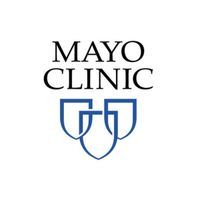
Critical Aspects of NMOSD Clinical Care: Brian G. Weinshenker, MD

The professor of neurology at the Mayo Clinic College of Medicine highlighted the importance of the diagnostic process and implementing an early treatment regimen for patients with NMOSD.
"We’re now trying to be sure that all patients with a complete diagnosis of AQP4-IgG-NMOSD get on a treatment because the risk of relapse to them is very high and each relapse carries a substantial risk of disability.”
After years of no approved treatment options, the neuromyelitis optica spectrum disorder (NMOSD) community has benefitted from FDA greenlighting therapies such as eculizumab (Soliris; Alexion), inebilizumab (Uplizna; Viela Bio) and satralizumab (Enspryng; Genentech), all in the last 2 years. These therapies, indicated to treat aquaporin-4 autoantibody-positive (AQP4+) patients, have shown the ability to improve the frequency of relapses in this patient population.
Although the presentation of NMOSD is similar to other demyelinating diseases such as multiple sclerosis (MS), relapse recovery is poorer and relapses directly lead to cumulative disability. Because of this, the emphasis on the diagnostic stage and early intervention is even more critical. While the influx of new treatments has drastically altered the landscape, questions still remain regarding treatment optimization, adverse effects, and long-term durability.
For Brian G. Weinshenker, MD, education and recognition are 2 areas of need that need to be focused on more often. Weinshenker, a professor of neurology at
Newsletter
Keep your finger on the pulse of neurology—subscribe to NeurologyLive for expert interviews, new data, and breakthrough treatment updates.










